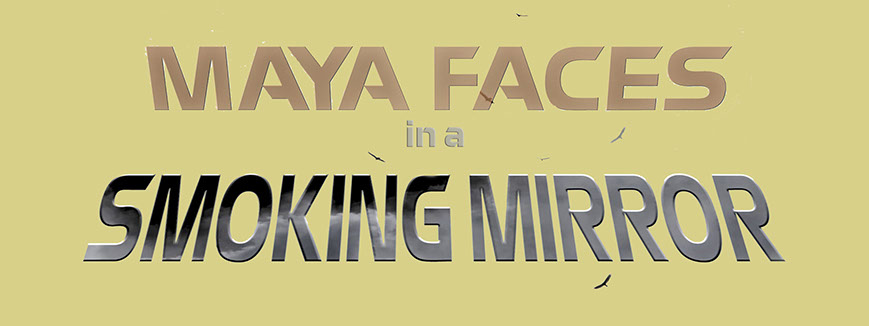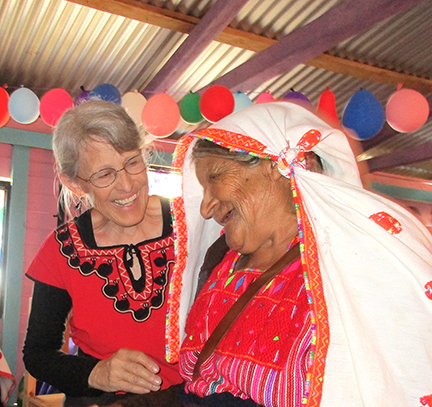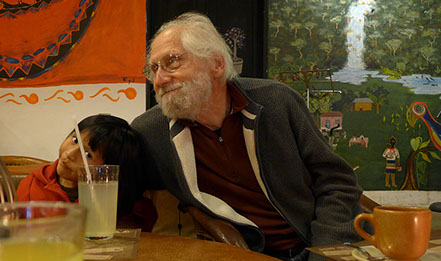

Christine Eber
Co-producer
Co-editor
Christine Eber is an author, anthropologist, and activist. Since the mid 1980s she has been conducting research in Chiapas, Mexico with Maya women and their families. She has closely followed changes at regional and community levels and at the household level in one tsotsil-speaking township, San Pedro Chenalhó. Her writings and applied work in Chiapas strive to show connections between long-term global processes and the daily lives of individuals. Through her work with Maya weaving cooperatives and the Maya Educational Foundation, she has dedicated herself to assisting Maya weavers and students to represent themselves to the world through their own words and works.
Prior to working with Bill Jungels on “Maya Faces in a Smoking Mirror” she consulted on his film about migration in Chiapas, “Broken Branches, Fallen Fruit.” In the late 1990s, she was a consultant to film-maker Judith Gleason on the documentary film, “Prayer for the Weavers,” filmed soon after the massacre in Acteal, Chenalhó, Chiapas.
Her books include Women and Alcohol in a Highland Maya Town: Water of Hope, Water of Sorrow; The Journey of a Tzotzil-Maya Woman: Pass Well Over the Earth, (with “Antonia”) and Women of Chiapas: Making History in Times of Struggle and Hope (with Christine Kovic). Her debut novel, When a Woman Rises, is forthcoming from Cinco Puntos Press in September 2018.
She is Professor Emerita of Anthropology at New Mexico State University in Las Cruces. In retirement she remains committed to seeking scholarship assistance for Maya young people to pursue education past sixth grade; assisting Maya weavers in Chiapas to sell their textiles through fair trade; and educating U.S. consumers about the effects of globalization on indigenous artisans. This work takes place in the context of Weaving for Justice (www.weaving-for-justice.org), a volunteer network based in Las Cruces, New Mexico that she helped form.
In recognition of her service to the people of New Mexico and Mexico Christine Eber was chosen as one of twenty women to receive the 17th Annual Governor’s Award for Outstanding New Mexico Women.

Bill Jungels
Co-producer
Director
Editor
Bill Jungels is documentary maker and activist concerned with social justice issues in Latin America, with a focus on indigenous campesinos and workers in Mexico.
In the 1980s he made several documentaries about the unfair treatment in the U.S. of asylum seekers fleeing the genocides in El Salvador and Guatemala. In the early 90s he did collaborative documentary work with the Border Arts Workshop of Tijuana and San Diego around issues of social justice for migrant workers. Later in that decade he made “Crossing the Line/Sobre pasando la línea” a full length documentary about repression of workers in the maquiladoras and efforts of workers in the three NAFTA nations to come together in the face of the liberty of capital and corporations to operate freely across borders.
His 2009 release was “Broken Branches, Fallen Fruit/Ramas rotas, frutas caidas: immigration and the family in Highland Chiapas”. This documentary looks at how immigration is both a solution and a source of fragmentation within specific Maya families in southern Mexico. At the same time it complements the previous documentary by showing how NAFTA and neoliberal economics eliminated opportunities for rural wage labor in Mexico and drove campesinos to “El Norte”.
His current release (co-produced with Christine Eber) is “Maya Faces in a Smoking Mirror” (Spanish version, “Caras mayas en un espejo humeante”). Young Mayas from Chiapas, Mexico confront the culture of commodification of all and of super exploitation of the earth and its people, especially indigenous peoples. Young women and men fight for a life of dignity: some are in the traditional life of the milpa for partial food self sufficiency supplemented by craft or cash crop income and temporal work for hire; others have achieved reputations as artists or musicians, or have earned university degrees and work to reestablish their connection to their culture and language. All articulate their stories in spite of the smoke of exploitation. Recently awarded “Best Feature Documentary” by Las Cruces International Film Festival. Projected as an official selection at the Xicanindie World Cinema Festival in Denver, 2019.
Acting as a frame around their telling of their stories and an example of the "smoke" of world commodification that attempts to erase their cultural identities is the story of the struggle against building a "Rural City" in the municipality of Chenalhó, Chiapas, where some of them live. These segments include interviews with some of the key actors in that successful struggle.
His documentaries have been shown in film theater and art gallery settings and used widely in university settings. He has had several recent gallery shows of his still photography.
He is the economic justice representative and media advisor of the Latin American Solidarity Committee of the Western New York Peace Center and has served on the boards of directors of The Peace Center, The Coalition for Justice in the Maquiladoras and of Rural Migrant Ministry.
He is a Professor Emeritus at the State University of New York College at Fredonia.
www,mayafaces.com
www.carasmayas.net
www.brokenbranchesdoc.com